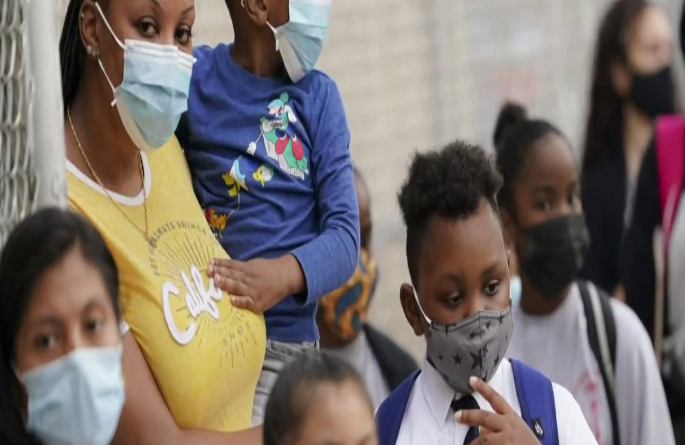FDA authorizes Pfizer vaccine for kids 5 to 11
With the new authorization, nearly the entire U.S. population is eligible for a Covid-19 vaccine.
By Sara G. Miller
The Food and Drug Administration on Friday authorized Pfizer-BioNTech’s lower-dose Covid-19 vaccine for children ages 5 to 11, making it available to 28 million children in the United States.
The FDA’s move comes several days after its advisory committee voted 17-0, with one abstention, in favor of recommending the vaccine for children. The committee concluded that the benefits of vaccination outweigh its risks.
During a press conference Friday, acting FDA Commissioner Dr. Janet Woodcock and director of the FDA’s Center for Biologics Evaluation and Research Dr. Peter Marks emphasized the safety and effectiveness of the vaccine.
“As a parent, if I had young child children in this age group, I would get them vaccinated now,” Woodcock said. “I would not want to take the risk that they would be one of the ones who would develop long Covid, who would develop multisystem inflammatory syndrome, or have to be hospitalized from the virus.”
Marks noted that most of the children in the clinical trial were exposed to the delta variant.
“The effectiveness here that was shown of 90.7 percent was likely in this setting of delta variant, which I think that’s, again, it’s very encouraging,” Marks said during the briefing. Though cases are currently going down in the U.S., winter is approaching, and the delta variant spreads very well indoors, he said. “To me, the rationale here is protect your children so that they can get back towards normal lives and so that you feel more comfortable with the activities that they would like to go about doing.”
The advisory committee’s vote Tuesday had capped off a robust debate about the potential risks and benefits of the shots for younger children, as advisers cited concerns about the unknown rates of an inflammatory heart condition called myocarditis, and whether children would even need protection from Covid.
“It’s always nerve-wracking, I think, when you’re asked to make a decision for millions of children based on studies of only a few thousand children,” committee member Dr. Paul Offit, a vaccine researcher at Children’s Hospital of Philadelphia, said Tuesday during the discussion. “The question is, when do you know enough? And I think we certainly know that there are many children between 5 and 11 years of age who are susceptible to this disease who could very well be sick and are hospitalized or die from it.”
Committee member Oveta Fuller, an associate professor of microbiology and immunology at the University of Michigan, agreed.
“The benefits of this option far outweigh the known risks,” she said during the discussion. “We certainly cannot anticipate all the risk ahead, but we know we have systems in place that can help us do that. So, I think we have to take a step and say we want to make this option available for what it might do to help the children, as well as others in this pandemic.”
In a presentation to the FDA on Tuesday, Pfizer said its vaccine was nearly 91 percent effective at preventing symptomatic illness in children, adding that it appears to hold up well against the highly transmissible delta variant.
Dr. Michael Kurilla, an infectious disease expert with the National Institutes of Health, abstained from voting.

